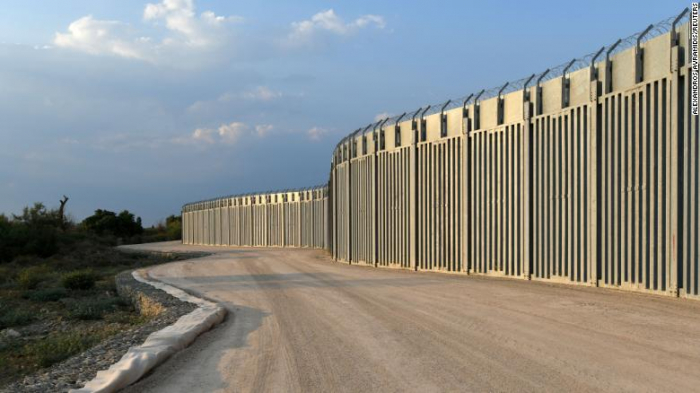Greece has finished building a 40-kilometer (25-mile) wall along its border with Turkey, amid concerns in parts of Europe that the Taliban's takeover of Afghanistan could cause an influx of people seeking asylum.
Greek government ministers toured the fence on Friday and said the overthrow of Afghanistan's government gave greater urgency to their effort to reduce the flow of migrants across its borders.
The country was at the center of Europe's migrant crisis in the mid-2010s, when millions of refugees from Syria, Afghanistan and Iraq traveled to the continent. Since then Greece has taken a hardline stance, rebuffing pleas from Turkey and international organizations to allow more migrants through its borders.
"The Afghan crisis is creating new facts in the geopolitical sphere and at the same time it is creating possibilities for migrant flows," Greece's Citizens' Protection Minister Michalis Chrisochoidis said in a government statement after touring the completed border wall on Friday. "As a country we cannot remain passive to the possible consequences."
Turkish President Recep Tayyip Erdogan spoke to Greek Prime Minister Kyriakos Mitsotakis about Afghanistan on Friday, the Turkish government said.
In a television interview the day before, he urged the European Union to assist refugees from the country. "If a transitional period cannot be established in Afghanistan, the pressure on migration, which has already reached high levels, will increase even more and this situation will pose a serious challenge for everyone," Erdogan said.
The unapologetic stance of US President Joe Biden, who faces criticism for the United States' chaotic removal of troops in Afghanistan, has dismayed leaders in Europe who are now left bracing for a possible refugee emergency.
Thousands of Afghans have attempted to leave the country in the past week, since the Taliban completed a staggeringly fast takeover of power and brought to an end two decades of US involvement in the country.
Crowds of desperate locals have gathered at Kabul's airport in search of a place on Western military flights. Those unable to leave face a return to a repressive Taliban regime, which banished women from its streets and workplaces and used the death penalty for offenses including female adultery, homosexuality and the rejection of Islam when last in power between 1996 and 2001.
"It is our decision... to defend and secure our borders," Chrisochoidis said. "Our borders will remain secure and inviolable. We will not allow uncontrolled and erratic movements and we will not allow any attempt to violate them."
Even before the Taliban took Afghanistan, the pandemic had worsened the migrant crisis. A deal was struck between Turkey and the European Union in 2016 to halt migrants traveling from the Middle East towards Europe, but last year Turkey approved the passage of migrants into the continent, saying it had "reached capacity."
The two countries share a border at the northeastern tip of Greece, which is frequently a destination of asylum seekers who travel through western Asia. There are also numerous routes into Greece by sea.
Last year several migrants on boats told CNN that they were pushed back from Greece, an accusation that Athens has repeatedly denied. UNHCR, the UN Refugee Agency, urged Greece to investigate reports of pushbacks at the country's borders.
CNN
More about:
















































